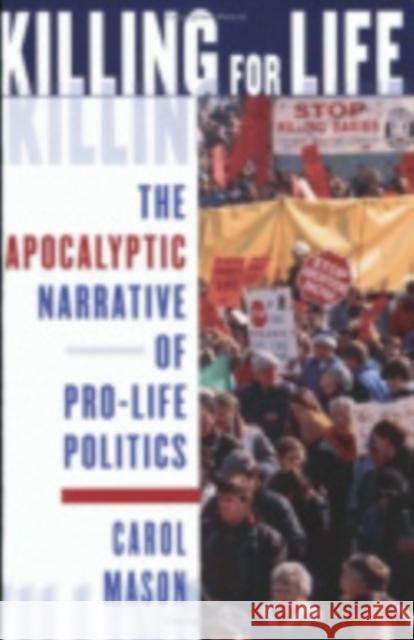Killing for Life » książka
Killing for Life
ISBN-13: 9780801439209 / Angielski / Twarda / 2002 / 264 str.
How can those who seek to protect the "right to life" defend assassination in the name of saving lives? Carol Mason investigates this seeming paradox by examining pro-life literature both archival material and writings from the front lines of the conflict. Her analysis reveals the apocalyptic thread that is the ideological link between established anti-abortion organizations and the more shadowy pro-life terrorists who subject clinic workers to anthrax scares, bombs, and bullets.The portrayal of abortion as "America's Armageddon" began in the 1960s. In the 1970s, Mason says, Christian politics and the post-Vietnam paramilitary culture popularized the idea that legal abortion is a harbinger of apocalypse. By the 1990s, Mason asserts, even the movement's mainstream had taken up the call, narrating abortion as an apocalyptic battle between so-called Christian and anti-Christian forces. "Pro-life violence of the 1990s signaled a move away from protest and toward retribution," she writes. "Pro-life retribution is seen as a way to restore the order of God. In this light, the phenomenon of killing for 'life' is revealed not as an oxymoron, but as a logical consistency and a political manifestation of religious retribution."Mason's scrutiny of primary sources (direct mail, internal memoranda, personal letters, underground manuals, and pro-life films, magazines, and novels) draws attention to elements of pro-life millennialism. Killing for Life is a powerful indictment of pro-life ideology as a coherent, mass-produced narrative that does not merely condone violence, but anticipates it as part of "God's plan."











